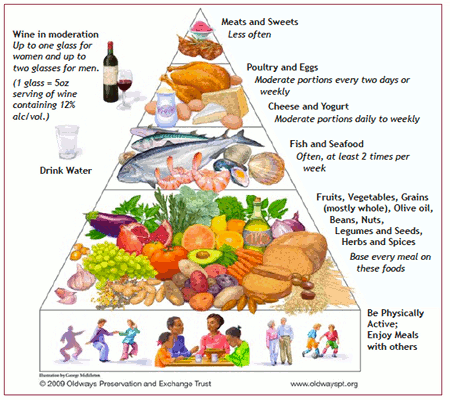
 |
|
|
 Drinking in moderation is considered to be one of the five heart healthy lifestyle components, together with not smoking, eating a diet low in saturated fats, red meats and high in vegetables grains and fruit (The Mediterranean style diet), staying slim and exercising regularly.
Drinking in moderation is considered to be one of the five heart healthy lifestyle components, together with not smoking, eating a diet low in saturated fats, red meats and high in vegetables grains and fruit (The Mediterranean style diet), staying slim and exercising regularly.
However, despite the impressive decline in death from heart disease in the UK over the last decade, diseases of the heart and circulatory system (CVD) are still the main cause of death in the UK.
In 2011, cardiovascular disease (excluding cerebrovascular disease, responsible for a further 36,000 deaths) caused over 64,000 deaths in the UK. This compares to around 30,000 deaths a year from lung cancer 10,300 deaths from colorectal cancer and 12,000 deaths from breast cancer.
(All statistics are from https://www.ons.gov.uk)
The British Heart Foundation states in its October 2010 statistical report 'While moderate consumption (one or two drinks a day) does not increase the risk of CVD, it is estimated in men that 2% of CHD and 5% of stroke is due to excessive drinking. The impact of alcohol consumption in women in developed countries was estimated to be positive - that is, if no alcohol were consumed, there would have been 3% increased CHD and a 16% increase in stroke'.
| Drinking more than responsibly does not increase the protective effect - and only leads to long term health harms. Drinking heavily can lead to irregular heart beat, sudden heart death and significantly increases the risk of a hemorrhagic stroke. |
How does alcohol protect my heart?
The protective effect applies to those men over 40 and post menopausal women, where the risk of heart disease is higher. It is all a matter of dose: a daily drink, in any form, favourably alters the balance of fats or lipids in the blood, by stimulating the liver to produce the 'good' high density lipoprotein cholesterol (HDL). HDL removes the 'bad' low density lipoprotein cholesterol (LDL) from arteries and veins for disposal via the bile, which is referred to as reverse cholesterol transport.
Alcohol also inhibits excessive coagulation or the clotting together of red blood cells by reducing their ‘stickiness’, and facilitates the breakdown of blood clots. Drinking alcohol with a meal can reduce the sudden rise of a protein called fibrinogen produced by the liver. Fibrinogen increases the likelihood of harmful blood clots forming, called thrombosis.
UK guidance: |
Drinking more than responsibly (click here for the UK governments drinking guidelines) does not increase the protective effect - and only leads to long term health harms. Drinking heavily can lead to irregular heart beat, sudden heart death and significantly increases the risk of a hemorrhagic stroke.
The Mediterranean diet
Studies have shown that a healthier, ‘Mediterranean’ type diet, high in fruits, vegetables, fish, salad and olive oil and including alcohol in moderation, leads to greater longevity and a significant reduction in heart disease, late on set diabetes and stroke. The Lyon Heart Study found that this type of diet, combined with moderate wine consumption, might prevent a second heart attack in middle-aged men. Compared to non-drinkers, men drinking two glasses of wine a day reduced their risk of a second heart attack by 59%. Following the five heart healthy lifestyle factors of staying slim, not smoking, exercising gently daily and eating a balanced diet high in fibre, fruit and vegetables and low in saturated fats and drinking between 1/2 and two drinks a day, more than halves the risk of heart disease, type 2 diabetes and stroke.
Conversely, binge drinking, which is considered to be the consumption of more than 6 standard drinks per drinking session, is seen to significantly increase systolic blood pressure, which significantly increases the risk of coronary heart disease or stroke.
Drink with food
Accompanying alcohol intake with food not only decreases the effect of alcohol (lowers the higher blood alcohol level associated with drinking on an empty stomach), but helps counter damaging free radicals. Rich foods increase the state of “oxidative stress” in the body. Dietary antioxidants, including those from red wine, can help reduce the oxidation of cholesterol and lipoprotein, both implicated in cardiovascular disease. Research shows that drinking outside of meal times increases the risk of high blood pressure; and, along with abstinence, is associated with greater all cause mortality.
Stroke
Stroke is one of the leading causes of death and disability in the developed world. While heavy alcohol consumption appears to increase the risk of all types of strokes, moderate drinkers have a reduced risk of stroke compared to non-drinkers and heavy drinkers. Ischaemic strokes account for 85% of strokes. They are caused by blockage of a blood vessel by a clot, which starve the brain of blood and hence oxygen. The anti-coagulatory (clotting) effect of alcohol lasts for approximately 24 hours, and hence regular moderate alcohol consumption is necessary to maintain a reduced the risk of ischaemic stroke.
What the experts say...
The National Stroke Association Prevention Advisory Board states that “studies now show that drinking up to two drinks per day can reduce your risk for stroke by about half. More alcohol than this can increase your risk for stroke by as much as three times.”
Please note, however, that drinking heavily significantly increases the risk of a hemorrhagic stroke.
Alcohol and the heart - further information (Click for more information)
Other sources of more information:
 |